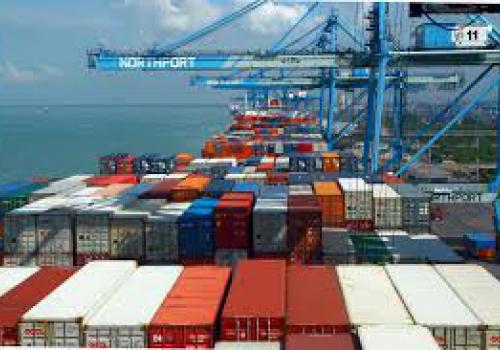Malaysia's gross exports are expected to decline 5.0 per cent this year with gross imports contracting at a faster pace of 6.0 per cent, Affin Hwang Capital said.
The firm, however, believes exports would remain in positive territory on a yearly comparison in the third and fourth quarters of 2020, indicating the sharp contraction in exports had bottomed out in the second quarter.
Last year, the country's exports and imports contracted 0.8 per cent and 3.5 per cent respectively.
Affin Hwang said Malaysia's exports had maintained positive growth for the second consecutive month at 3.1 per cent year-on-year (yoy) in July (8.0 per cent in June) led by higher manufactured and agriculture exports.
In the first seven months of 2020, the trade surplus amounted to RM89.7 billion compared to RM89 billion in January-July 2019.
"In the months ahead, with the ongoing Recovery Movement Control Order, which enabled almost all factory operations in the country to operate, we expect the country's exports growth to trend in tandem with demand from overseas, with minimal business disruption.
"The recovery in external demand was supported by expansion in Malaysia's manufacturing Purchasing Managers' Index (PMI), which rose by 50 in July (from 51 in June) with output and new orders maintained at similar expansion pace in July," the firm said today.
Besides that, Affin Hwang said the fifth consecutive month of increase in global sales of semiconductors by 5.1 per cent yoy in June (5.8 per cent in May) also bode well for Malaysia's exports of E&E products.
The sustained rebound in China's economic activity amid stimulus measures and containment of the virus will also bode well for Malaysia's trade performance.
However, the firm believes there are still downside risks to the sustainability of a rebound in growth of exports, especially in terms of a possibility of a second wave in Malaysia and other countries, which could lead to re-imposition of containment measures.
Furthermore, external demand may also be weighed down by slower global growth, prolonged global supply chain disruptions and weak sentiment due to Covid-19 related uncertainties.
"The concern of renewed escalation of trade tensions between the US and China will also pose a downside risk to the country's trade performance.
